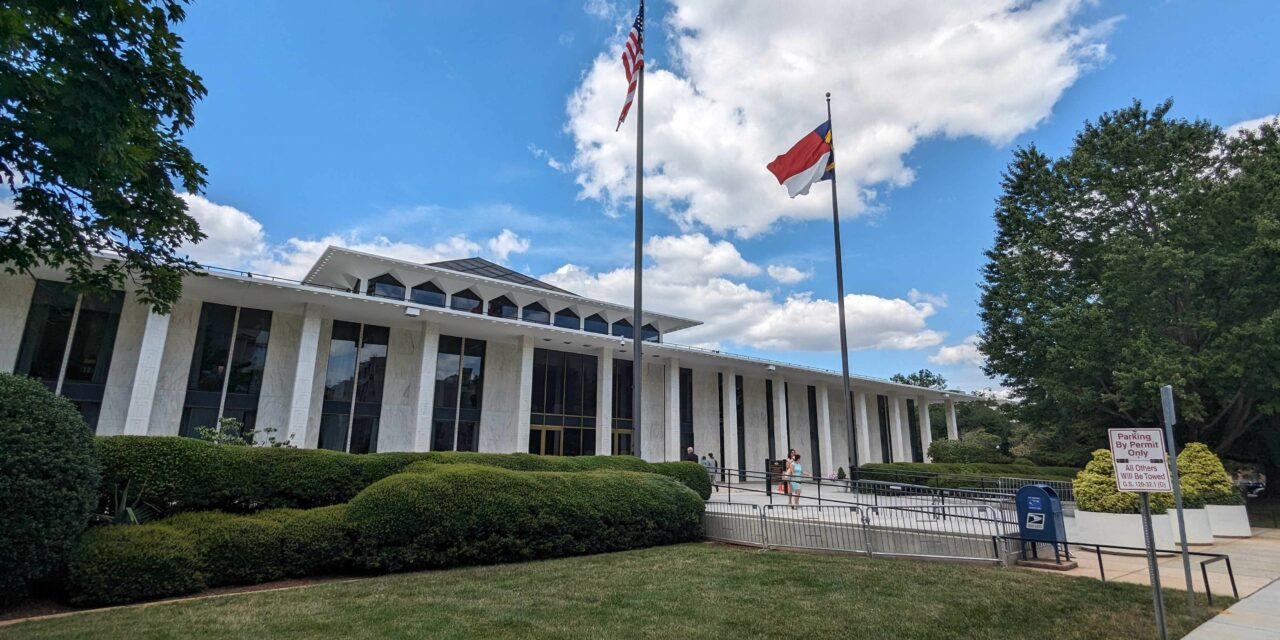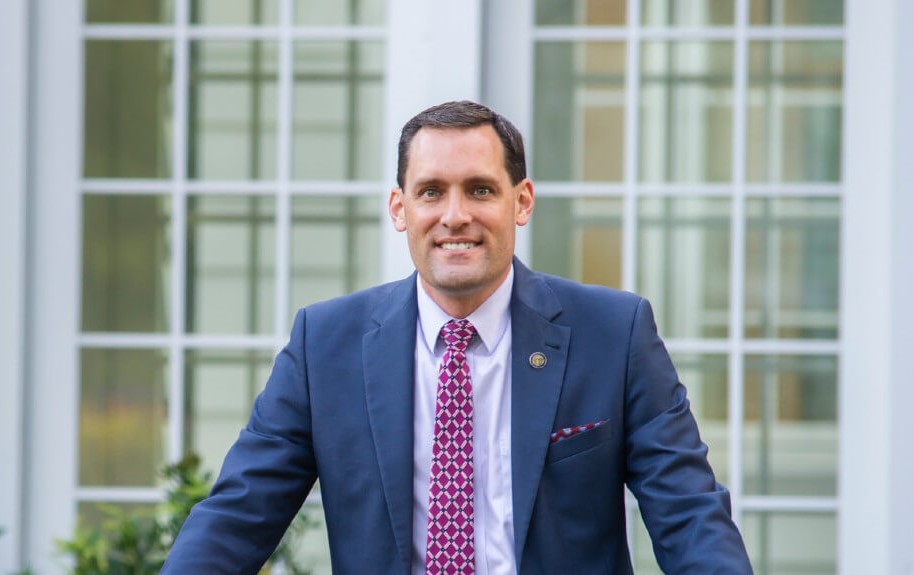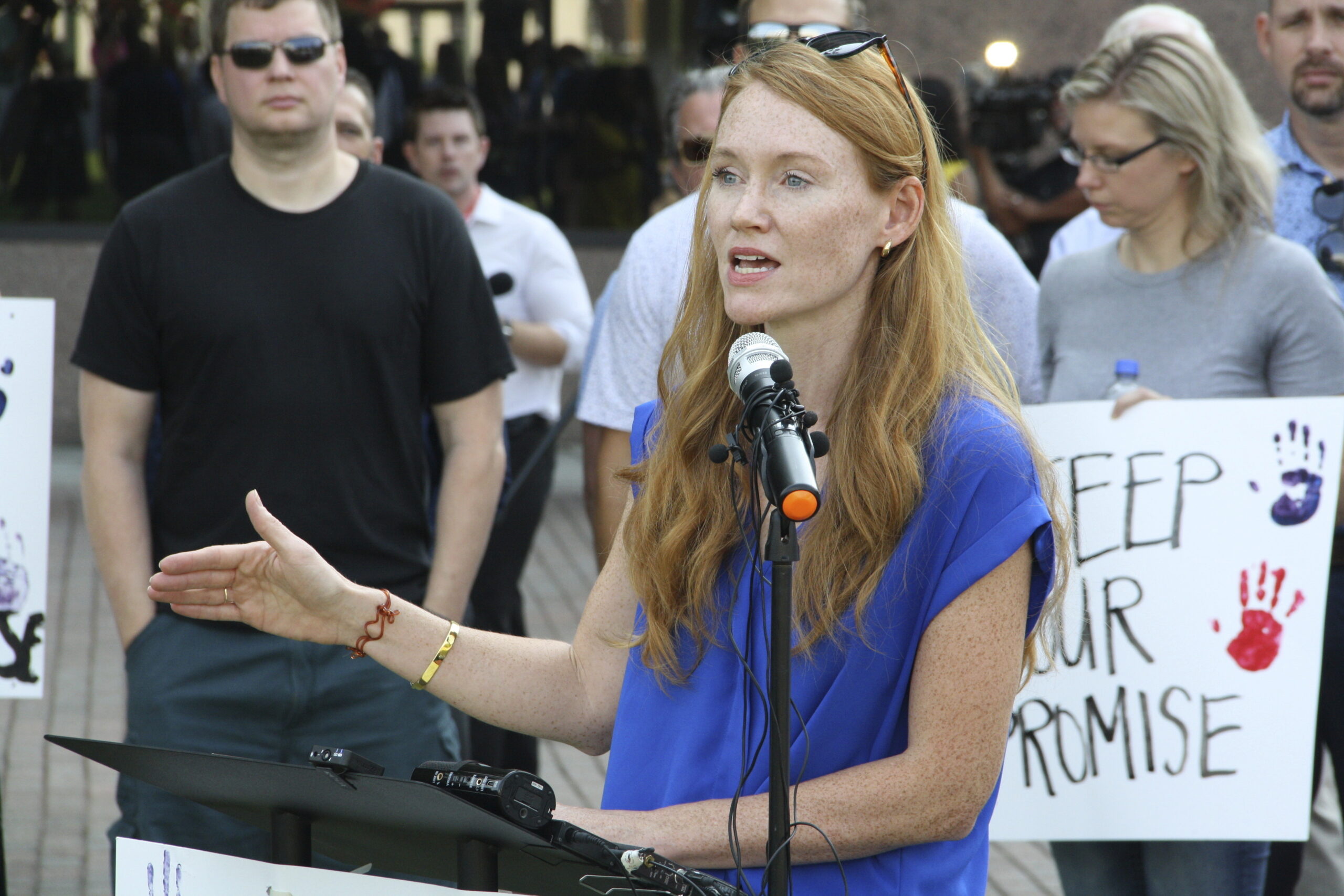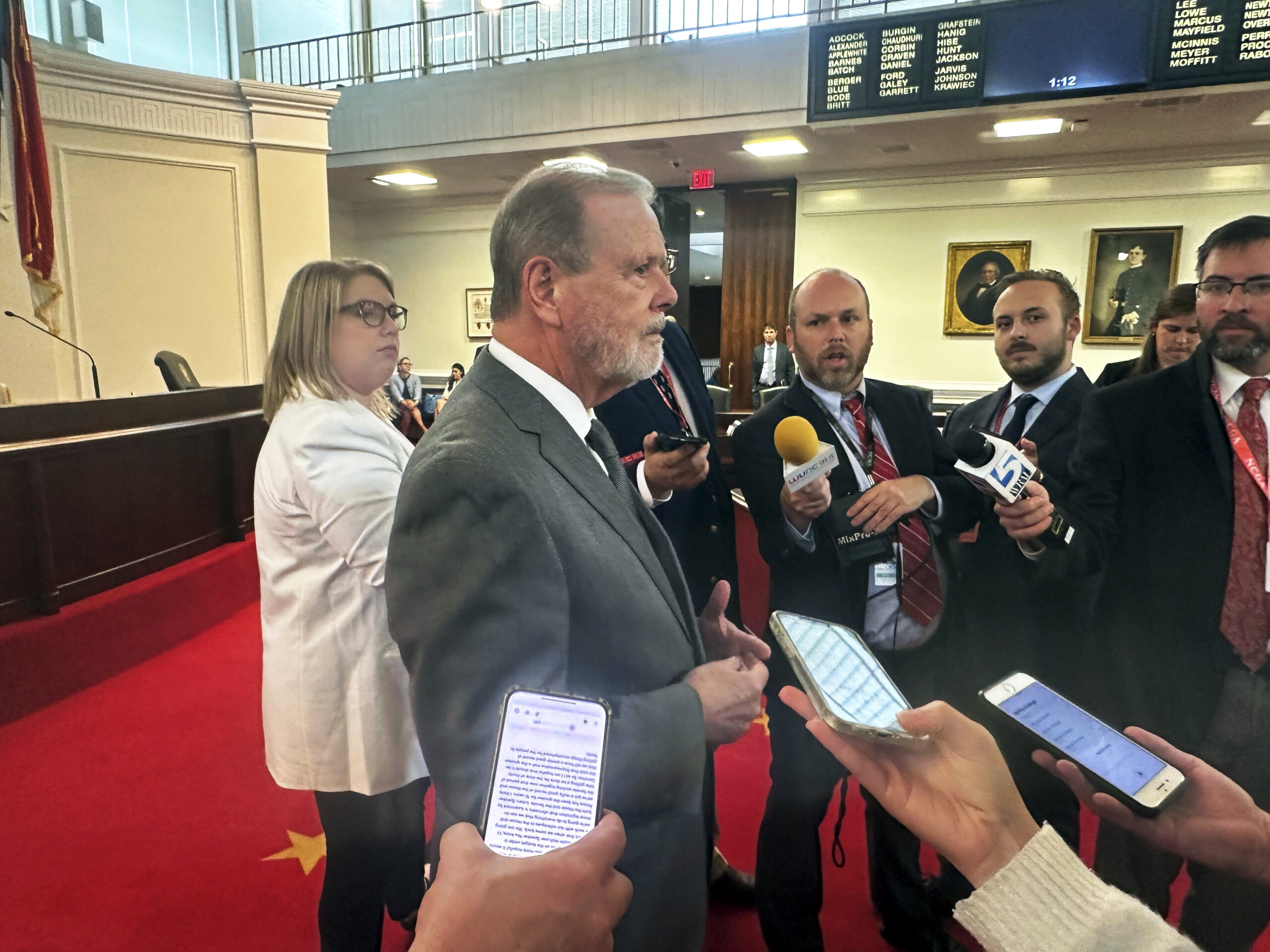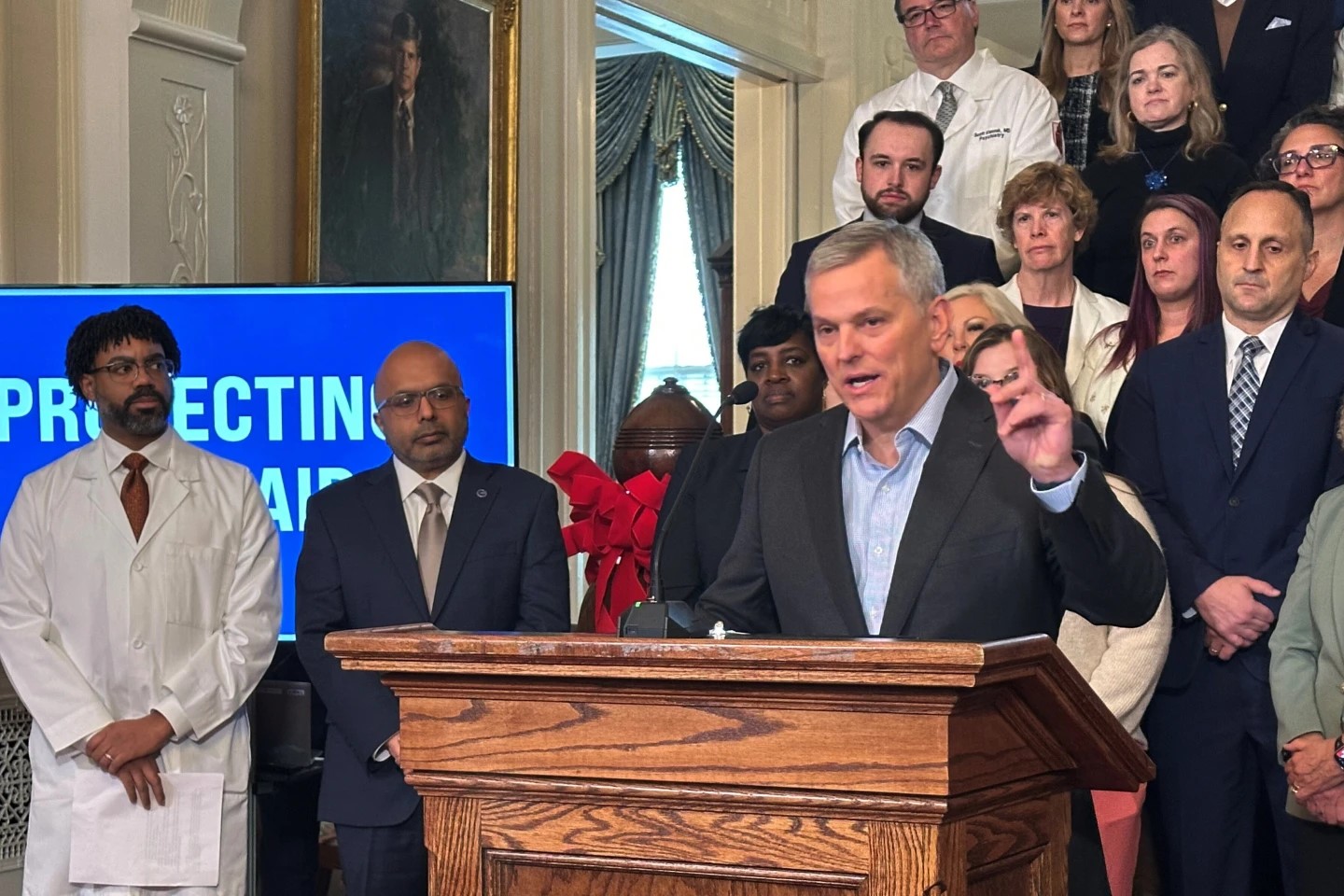The General Assembly is returning to session in Raleigh this week, to tackle a number of lingering issues stemming from lawmakers’ failure to pass a budget update in its short session earlier this year. Among other things, lawmakers may address funding for Medicaid and community colleges – but the top priority for Republicans will be a significant expansion of funding for private school vouchers.
GOP leaders have pushed for more voucher funding all year, but it did not pass in the spring – due in part to lingering concerns among some Republicans. Some lawmakers in rural districts are less sold on vouchers because their communities lack private schools; in addition, other Republican representatives are concerned about the long-term impact on the state’s budget, which is already approaching a possible fiscal crunch.
97.9 The Hill’s Aaron Keck discussed the issue with State Senator Graig Meyer (D-Orange).
Click here to listen to their full conversation. The transcript below has been edited for clarity.
Aaron Keck: Starting with Medicaid and community colleges: what should folks know about what may be on tap?
Graig Meyer: In both cases we need to adjust the funding for the number of people who are using the service. The money is there, it’s not a hard thing to do, but because we didn’t do a comprehensive budget (this year), those organizations are left holding the bag. And they’ve both been saying, “Can’t you get us the money that we need to actually serve people?” This will make a big difference to Durham Tech; it also makes a big difference to the hospital system and medical providers.
Keck: Another key thing is funding for childcare.
Meyer: We did do a childcare funding expansion (earlier this year).
Keck: Some funding.
Meyer: Basically we (covered) two-thirds of the gap. That will take us up through the beginning of next year. And the reason why it was done that way is because it really needs a federal fix. And I understand why the General Assembly leadership did that: they said, “we’ll bridge the gap until we see whether Congress actually takes this up and fixes it.” And we know Congress may not do it this year, but hopefully they’ll come back early next year and do it – and then the state isn’t left holding the bag. But if Congress doesn’t take it up, then we’ll have to make another decision next year.
Keck: How about vouchers?
Meyer: Vouchers are clearly the most interesting and controversial piece.
Keck: Is it why you’re coming back in the first place?
Meyer: Yeah. So last year the Senate passed a bill that would expand the voucher program, so that everybody would be eligible no matter how much money you make. It used to be (that) you only were eligible under a certain income threshold. Now (they want to) give taxpayer funder funded vouchers to the richest folks in the state. The House did not pass that – and so now I think Republicans have gone home to their districts and had people say, “Hey, what happened to that voucher money you promised us?” And so I think they feel pressure to come back and do that funding before the election…
The reason why it got held up was because there are enough Republicans in the House who don’t want voucher expansion. They weren’t willing to pass a budget that expanded vouchers unless they got something back for it. It’s not clear to me what those Republicans are going to get, but there’s a deal that’s being worked on.
Keck: The last time you were in, we talked about budget-hawk Republicans who are unwilling to pass big things like this, because (in) a few years there’s likely to be a budget crunch.
Meyer: That’s right. And it’s not that far out now, 2026…
The fiscal deficit is (looming) because they have put in place staggered tax cuts, that will soon outpace the rise that we get in tax collections from population growth. You don’t want to have to raise taxes when you have enough new people or new business, you want to keep taxes low – but if you cut them so much that even the growth doesn’t keep up, then you end up in the hole pretty quickly…
(Lawmakers) understand that if we do this massive taxpayer giveaway on vouchers to people who don’t need them, it blows an even bigger hole in the budget that’s already coming. And then there’s also a set of Republicans in the House whose (constituents) don’t really benefit from vouchers. If you live in a really rural district with no private schools, you need your public schools to work. You can’t up and drive your kids 90 minutes to a private school every day. So there’s not as much support there in the House. But there is certainly enough support that, if they get a bargain, whatever they want in exchange, there’ll be votes for it.
Keck: We’re looking ahead to what might happen in the General Assembly in the fall…and I imagine depending on the outcome of the election, there might be another session in December?
Meyer: Yeah, we’ve already had November and December sessions put on our calendar. There’s a few veto overrides that are outstanding; maybe they’ll try (those) next week (or) maybe they’ll wait until after the election. And then of course, there’s been this decade-long power struggle between the legislative branch and the executive branch…and I’m sure if Josh Stein wins – actually even if Mark Robinson wins – I think the legislature wants more of this power for itself. So I fully expect that we’ll see another round of bills trying to take away power from the governor.
Keck: This is going to come across like a cynical question, but – what power exists that the General Assembly could take, that they haven’t already tried to take?
Meyer: There are still a few bills that are held up in court; they may try to pass different versions that the courts would maybe allow – for instance, control of the Board of Transportation. (And) I think they would probably like to have more control over appointments to the state Board of Education. The Republicans actually know how dangerous (GOP candidate) Michele Morrow would be as state superintendent, and so they may – even if she wins – they may try to take power away from (the superintendent), and power away from a Democratic governor, and have more control over education themselves.
Chapelboro.com does not charge subscription fees, and you can directly support our efforts in local journalism here. Want more of what you see on Chapelboro? Let us bring free local news and community information to you by signing up for our newsletter.

